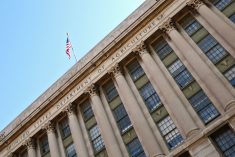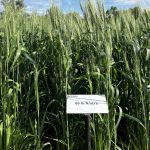Buenos Aires | Reuters — Argentina’s centre-right government said Monday it was disappointed by the volume of soy stocks sold by farmers in the three weeks since it reduced the tax on soybean exports.
President Mauricio Macri cut the tax on shipments of soybeans, the country’s main cash crop, from 35 per cent to 30 per cent days after assuming power, while scrapping export taxes on corn and wheat.
The move was aimed at revitalizing the country’s massive farm sector, which was hobbled by trade controls imposed by the former president, Cristina Fernandez.
Read Also

U.S. grains: CBOT soybeans, corn, wheat fall in USDA data aftermath
Chicago grains took a dive on Friday, following a closely watched U.S. government crop report and the release of export data that could provide clues into Chinese buying.
Data published on Monday by CIARA-CEC, Argentina’s chamber of grains exporting and soy crushing companies, showed firms sold $752.3 million to the central bank from exports between Dec. 28 and Dec. 30 (all figures US$). That was more than double the amount sold in the whole of November.
In total, grains companies sold $2 billion to the central bank from exports in the three weeks after the controls were lifted. That figure is 10 per cent of the annual total of $20 billion.
Even so, Ricardo Negri, secretary for agriculture, livestock and fisheries, said higher volumes had been anticipated during the three-week period.
“We were expecting that more stock reserves would have been sold by this point and we hope that this happens in the coming days,” Negri told reporters.
Separately, a second official in the agriculture ministry forecast Argentina’s soy harvest would be close to 60 million tonnes of soy in the 2015-16 crop cycle, slightly below the 61.4 million tonnes produced in the previous harvest.
Macri’s new government is counting on the dollars from grains exports to help bolster the country’s weak foreign currency reserves.
High inflation, a weakening currency and heavy-handed state controls led farmers to hoard crops worth billions of dollars during Fernandez’s last year in power.
— Reporting for Reuters by Maximiliano Rizzi and Richard Lough.














